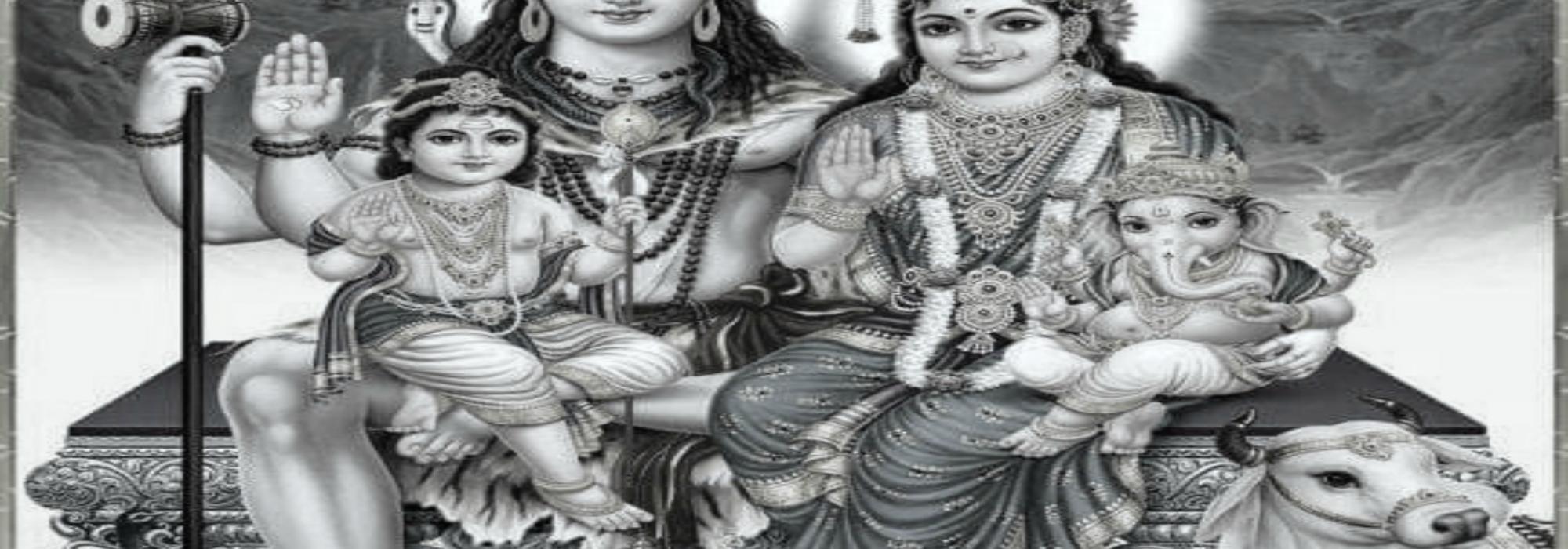जगतीधरजामाता भवतां भव्याय भूयसे भवतु |
कञ्चिदकिञ्चनमपि यद्वीक्षा विदधाति शक्रसमम् ||
Kāvyakaṇṭha Vāsiṣṭhagaṇapati-muni was an āśukavi and could compose a hundred verses extempore within an hour (The feat is called ‘ghanṭāśataka’). His scholarship, too, was enormous. Once, during an avadhāna in Madras, he composed twenty-five verses in Sanskrit in just six minutes. He could skim through the pages of a book and reproduce the content accurately – such was his grasp and memory power. He could even handle challenging aspects of an avadhāna like vyastākṣari effortlessly.
Once, Taṇḍālaṃ Subrahmaṇyaśāstri posed a challenge to this great poet. He had to compose a verse in the āryā metre, with four different meanings, each related to the deities Śiva, Śakti, Skanda and Gaṇeśa. Vāsiṣṭhagaṇapati-muni came up with the above verse on the spot:
“May the Jagatīdharajāmātṛ (जगतीधरजामातृ) take care of your welfare and give you the best. Just a side-glance of the deity is enough to make a poor person equal to the lord of the heavens (Indra)”
‘Jagatīdharajāmātṛ’ can be interpreted in four different ways. ‘Jagatīdhara’ means a mountain, i.e., that which holds the earth together. The deity born from the mountain is ‘Jagatīdharajāmātā’, Pārvatī. ‘Jagatīdharajāmātṛ’ again means the son-in-law (jāmātṛ) of the mountain, i.e., the husband of the daughter of the mountain, Śiva. Jagatīdharajāmāta is someone whose mother is the daughter of the mountain, both Skanda and Gaṇeśa.
Vāsiṣṭhagaṇapati-muni thus composed a caturarthi verse in a single stroke.
Adapted from Kannada by Arjun Bharadwaj
(The original article is from the anthology Kavitegondu Kathe)









































Comments